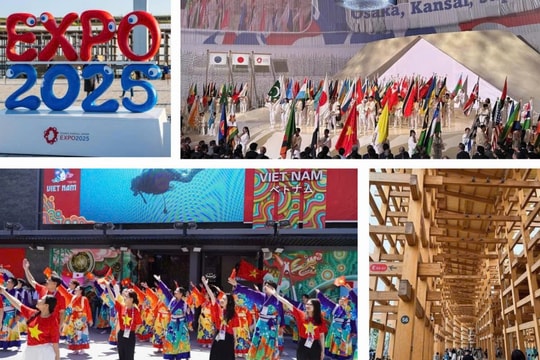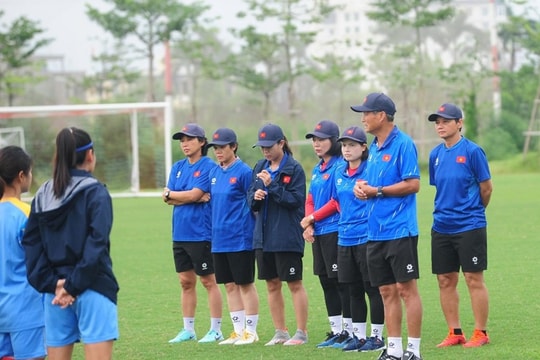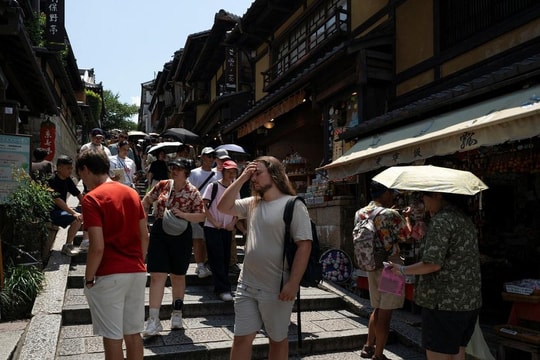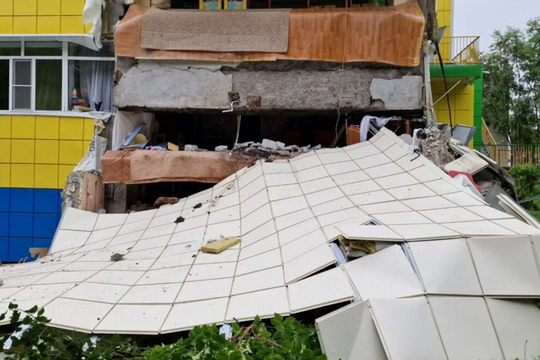Verification results of the case of Vietnamese workers calling for help in Japan
After verifying and checking the case that the worker sent reflecting the working conditions in Japan, it was found that this information was incorrect.
Continuing to inform about the incident involving dozens of Vietnamese workers calling for help in Japan on March 15, Mr. Tong Hai Nam, Deputy Director of the Department of Overseas Labor Management (Ministry of Labor, War Invalids and Social Affairs) affirmed:
After verifying and checking the case that worker Nguyen Quang Hung sent to the Citizen Protection Committee (Vietnamese Embassy in Japan), reflecting that the working, accommodation and living conditions of workers in Japan were not as per the terms signed in the contract with the employing company, it was found that this information was incorrect.
 |
| Image of Vietnamese labor group at Sainan Company provided by Department of Overseas Labor Management (Ministry of Labor, Invalids and Social Affairs). |
PV:Sir, what are the specific results of the investigation and verification of the case of a Vietnamese worker in Japan who filed a petition for help to the Citizen Protection Committee (Vietnamese Embassy) in Japan?
Mr. Tong Hai Nam:Recently, representatives of the Vietnamese Labor Management Board in Japan went to Iwate province to visit the Seinan factory - where Vietnamese workers are working, and Mr. Hung's petition was sent to social networks as well as the Citizen Protection Board (Vietnamese Embassy) in Japan to appeal for help regarding the treatment and very difficult living conditions.
According to the information we received from the Vietnamese Labor Management Board in Japan, in reality, when we went to the Seinan factory in Iwate province, we found that the working and living conditions of the workers there were not as what Mr. Hung had posted on social networking sites as well as the petition sent to the Citizen Protection Board (Vietnamese Embassy) in Japan.
Specifically, according to the information provided by the Embassy, there were 33 workers who went as practical engineers, through the factory of the employer Freesia House Corporation to work in Japan and at 3 different locations. At the Seinan factory, Iwate province, there were 9 workers, including Mr. Hung and 8 other workers.
Through the field, the Vietnam Labor Management Board found that the working conditions of the workers were not as what Mr. Hung had called for help. In fact, the other 8 workers knew the working conditions as well as the living conditions before being sent to work in Japan, so it can be said that the information that Mr. Hung posted on social networks as well as in the appeal for help was one-sided information, information of Mr. Hung personally and not representative of the Vietnamese workers sent by Freesia House Corporation to work in Japan as practical engineers under individual contracts that the Company signed with the workers.
PV:So what are the current conditions of accommodation, living, holidays and salary regime for employees at this Company, sir?
Mr. Tong Hai Nam:In fact, according to the report of the Vietnam Labor Management Board in Japan, there were 33 Vietnamese workers sent to work in Japan through Freesia House Corporation and they were sent to work in 3 factories. At the Seinan Factory in Iwate Prefecture, the workers worked in relatively safe conditions, in accordance with Japanese law and the contracts signed before being sent to work in Japan.
Specifically, according to the information provided by the workers, their income is about 200,000 Yen/month. After deducting the cost of accommodation, food and monthly living expenses, each worker can save from 100,000 - 120,000 Yen/month. I think this is a guaranteed income level.
As for the living conditions of the workers, in Mr. Hung's reflection, it was said that all workers must eat brown rice - that could be a Japanese tradition, because we manage labor in Japan and know that it is not only this factory, but many factories have the tradition of eating brown rice.
Regarding the deduction of housing expenses according to the complaint, and the deduction of food expenses according to Mr. Hung's complaint, it is true - but all the workers (in this case, the remaining 8 workers) said that these things were already announced before they went to work in Japan. That is, right in Ho Chi Minh City, when the workers signed the contract, the employer informed them about the deductions and the working conditions. Therefore, people said they were not surprised.
PV:According to you, what is the reason why workers send such unrealistic petitions?
Mr. Tong Hai Nam:This is Mr. Hung's personal problem. According to the investigation of the Vietnamese Labor Management Board in Japan, he is not satisfied with his job, wants a lighter job, is not autonomous in his work, and often needs direction, guidance, and advice from the Japanese for him to do it.
Even at work, Mr. Hung refused to learn Japanese to be able to communicate or understand the instructions of the manager, which made him unsuitable for the job. Therefore, on March 1, the company that employed him announced that Mr. Hung was not suitable for Japanese workers at the company, so they asked him to return home.On March 14, the company representative took Mr. Hung to Tokyo to complete the procedures to return home.
I think that is the reason why Mr. Hung was upset, sent a petition to the Citizen Protection Committee (Vietnamese Embassy in Japan) as well as posted inaccurate information on social networks, causing negative public opinion about Vietnamese workers working in Japan, specifically at the Seinan factory in Iwate province in particular, as well as the image of Vietnamese workers currently working in Japan in general.
PV:To avoid similar incidents, what issues should be focused on in the selection, training and promotion of workers going to work abroad, sir?
Mr. Tong Hai Nam:In fact, through our management and monitoring of the Japanese market, most of the workers sent by businesses in the form of advanced training - technical interns, have been trained in foreign languages and provided with necessary knowledge by businesses before being sent to work in Japan.
Workers have been fully informed about Japanese culture, customs, and laws as well as the content and regulations of the place they will work in, and the terms and conditions of the contract that the workers must comply with.
For workers who go through dispatching companies licensed by the Ministry of Labor, War Invalids and Social Affairs, all companies must publicly and transparently disclose the terms and conditions of the contract that the workers must comply with before sending them to work abroad and before recruiting them. Therefore, the percentage of low-quality workers in Japan who go through dispatching companies is not high.
PV:Thank you very much!./.
According to VOV
| RELATED NEWS |
|---|







.jpg)
